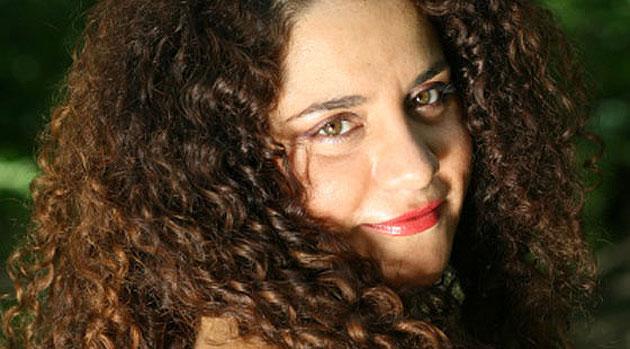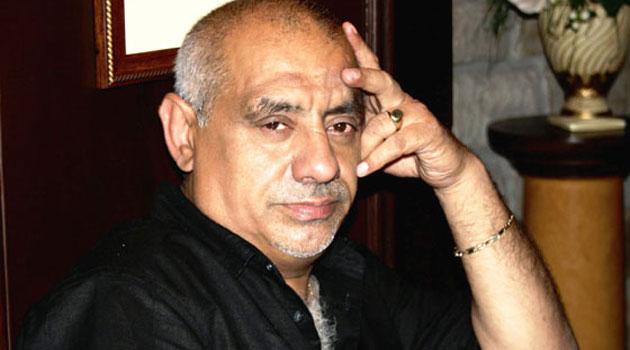Jarmila Balážová: Is the boundary of what is excusable being pushed beyond all recognition?

The discussion in recent days about the attempted nomination of Czech Human Rights Commissioner Helena Válková and the actual nomination of former Deputy Public Defender of Rights Stanislav Křeček as candidates for the post of Public Defender of Rights (ombudsman) has again stirred up our thinking about what we are willing, as a society, to tolerate in public office – and whom we are willing to tolerate in office. This discussion is playing into the hands of those who take cheap, populist stances against the institutions and positions at issue and who, thanks to their criticisms based on manipulation, are gaining media coverage for their preference to see these offices occupied by people who are close to them – the “Freedom and Direct Democracy” party (SPD) has expressed support, through its chair, for Křeček, who is Czech President Zeman’s nominee.
To my great regret, however, these discussions are all being reduced to reminders about the communist past in particular and statements related to the subject of human rights with respect to both offices. While that is certainly very worthwhile and I thank the media for it, I am missing deeper reflection on what these institutions and positions are actually meant to address, what they have managed to accomplish since their inception and what not, how well they are known to the public, how the human rights agenda is worked with in neighboring countries, etc.
Be that as it may, this is becoming an interesting probe, including into the attitudes of the civil society members of the Czech Government Council for Roma Minority Affairs.
The civil society members agreed very quickly and unequivocally regarding Křeček that, in their view, he is unacceptable for the position of the ombudsman because of his generalizing statements with respect to the Roma.
In the case of Válková staying in the position of Government Commissioner for Human Rights, there is no longer any such agreement. Other articles, on news server Romea.cz as well as in other media (for example, Seznam Zprávy) show that six out of 15 civil society members think she should not, but two defend her, and one of these defenses is absolutely uncritical (Válková is said to be doing more than the previous Human Rights Commissioners and even more than the previous Human Rights Ministers). This is somewhat ridiculous, because one just has to look at how those other ministers, as well as Human Rights Commissioners, have performed in the past, in what atmosphere they were holding those positions – for example, during the time of the anti-Romani demonstrations, which they often also monitored in person, etc. Yes, the Human Rights Commissioners have been missing in action, but unfortunately, the civil society members of the Czech Government Council for Roma Minority Affairs did not publicly complain about how those commissioners were behaving.
Let’s review Válková and the civil society members of the Council for Roma Minority Affairs. It was news server Romea.cz that contacted them all and ascertained their opinions, including by telephone. Besides the eight whom we have mentioned, the rest refused to express an opinion, mentioning, for example, that they have different tasks to complete at the Council, that they want to influence what will happen there next.
Just one member of that advisory body, Renata Köttnerová, has preferred to resign rather than continuing to serve on the Council under its current leadership. You can read her justification of her resignation here.
On 3 February yet another full session of the Council for Roma Minority Affairs is meant to take place, and according to civil society member Alica Heráková, those members want to hear the Commissioner’s arguments, just as the civil society members of the Human Rights Council have, including about her contribution to the anthology dedicated to research into delinquent cikánský youth, which was also published during totalitarianism and which contributed some rather absurd, generalizing findings, for example, about the attitude to education of such people, etc.
It is necessary to say this is not a witch hunt, but that in a decent society, public functions, and especially those related to human rights, are to be performed by people who have a certain moral credit. Neither Mr Křeček nor Ms Válková have such moral credit (yes, including because of her collaborating on the aforementioned anthology) and that cannot be excused even by Ms Válková currently trying to understand Roma issues, being hardworking, and doing her best to accomplish something with respect to the issue of compensating Romani women who have been sterilized or Holocaust victims of Romani origin whose assets were confiscated.
Yes, those topics are important, but there is something at stake that is of even higher value, and that is the task of behaving in a certain way. If we condemn the behavior in one case, then we should also condemn it in another, otherwise it may very easily happen that the distinctions between what is acceptable and unacceptable, between what is moral and immoral, will be completely erased. Just as it is now possible for a vice-chair of the Chamber of Deputies to be a person who is openly manipulative and racist.
Now to the dimension of the debate in both the Roma and the non-Roma media that is lacking – and here I am absolutely missing decisive behavior by the Council’s civil society members who are Romani. How is it that the current debate on the limits of what is and is not yet possible in public office is not being transformed into an expansion of the idea that the time has come to debate whether a Government Commissioner should be a member of the Romani community, or of another minority? One who is morally impeccable, of course.
Why is that legitimate debate not going on publicly, why is it that at the very most we are just able to hear some noise about it that it is said to be going on from time to time behind closed doors? Why? Isn’t it a legitimate issue? As it is in Slovakia and other countries? Would the civil society members rather push the boundaries of what we are and are not yet able to accept and excuse the inexcusable? Would they rather remain in the Council because of the small, sub-options it affords them instead of seeking a more profound change in how Roma-related issues should be addressed? For that, the position of the Government Commissioner for Human Rights decidedly has more influence than the ombudsman does.
This is not an attack on the volunteer civil society members who work for free on the Council, on the contrary, they deserve our thanks, but because they are the only Roma, in addition to the director of the Agency for Social Inclusion, who can at least somehow can speak to how these subjects are addressed, it is not possible for them to not be part of these discussions. If they have little or no influence over how these matters will be addressed, and if it is not possible to increase their influence at the moment, then the question is why anybody should actually stay in that body.
